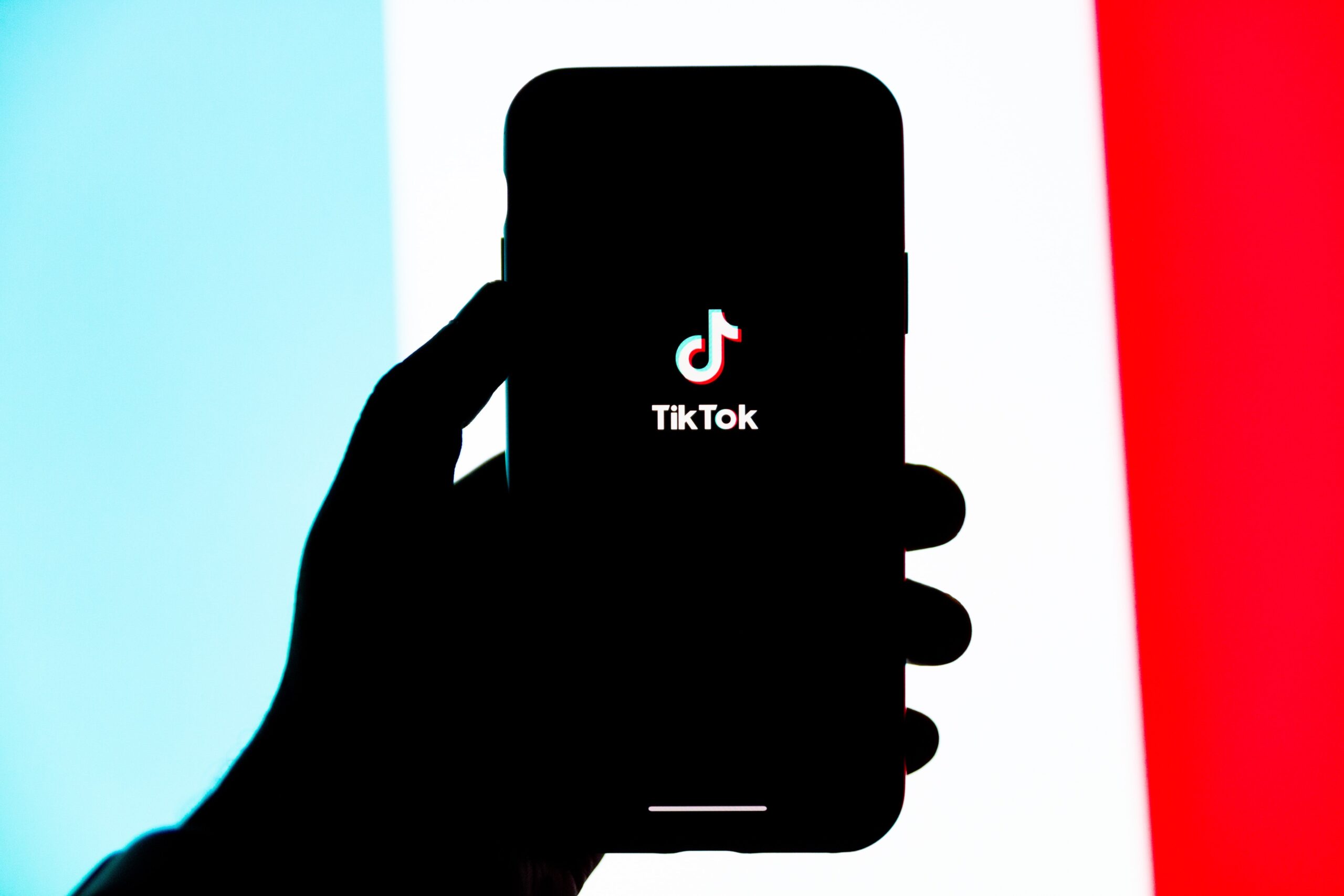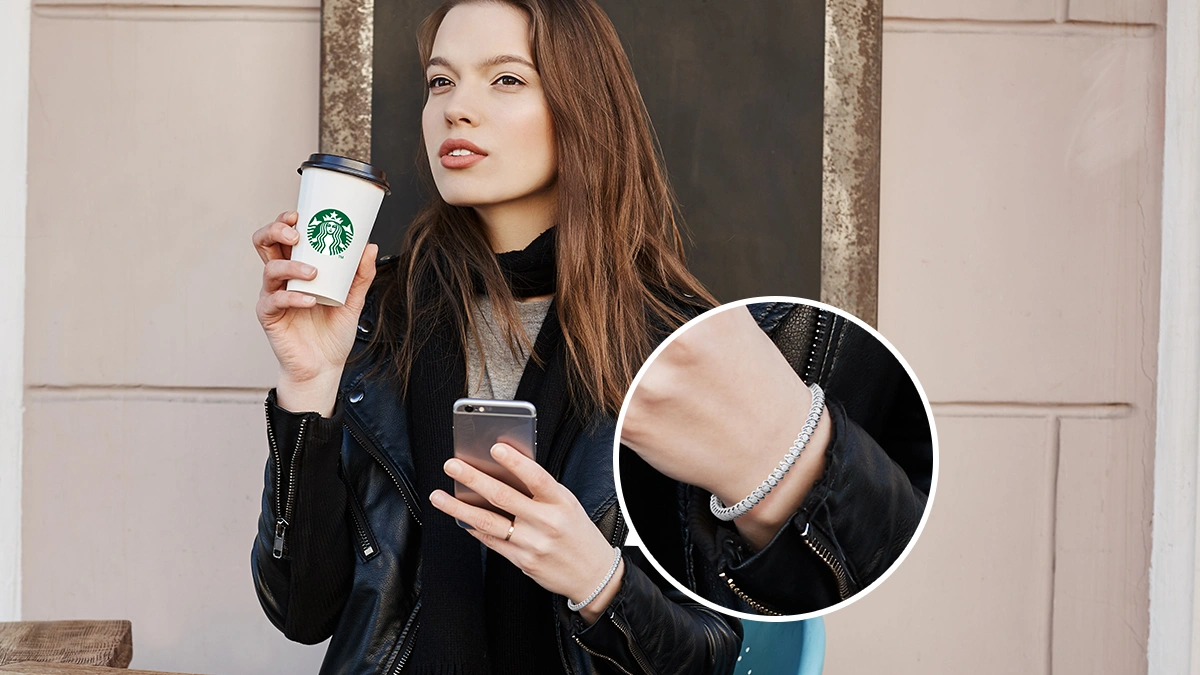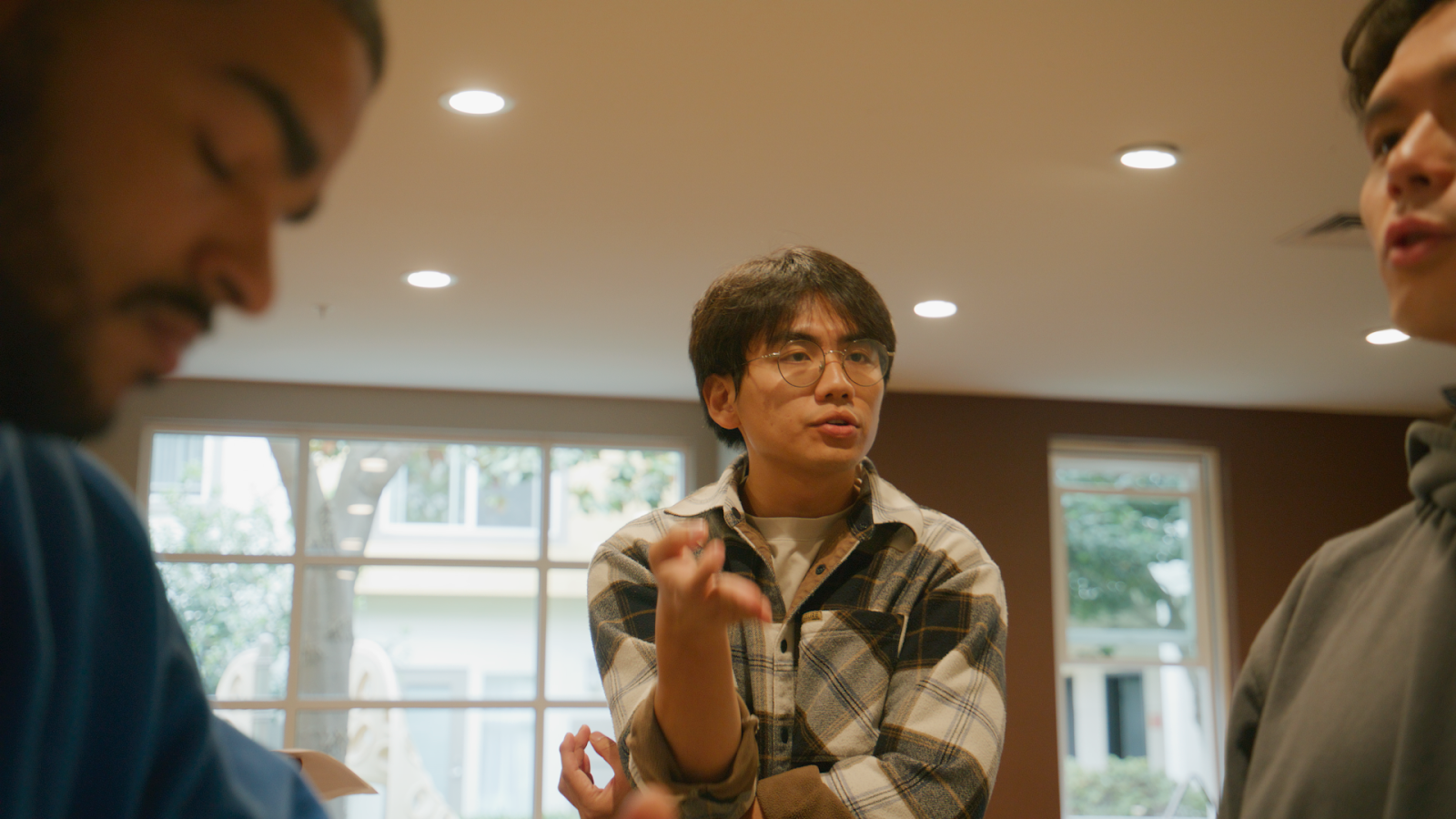CULTURE
The Ironic Politics of TikTok: China’s Muslim Genocide and Eyelash Curling
27 Nov, 19

TikTok
Photo by Solen Feyissa (Unsplash)
Is TikTok a threat to our national security? Are we all being secretly monitored by China? How do you get long eyelashes?!
These three pivotal questions of our modern times collided when a Muslim-American teenager woke up Monday morning to find that her TikTok account was suspended. Word quickly spread that 17-year-old Feroza Aziz was banned from the platform because of her popular video in which she feigns beginning a beauty tutorial about getting longer eyelashes and ends up making cutting commentary on the Chinese government.
“So, the first thing you need to do is grab your lash curler, curl your lashes, obviously,” Aziz begins her 45-second video. “Then, you’re gonna put them down and use the phone you’re using right now to search what’s happening in China, how they’re getting concentration camps, throwing innocent Muslims in there… This is another Holocaust, yet no one is talking about it.” She ends the video by leaning in with her lash curler to get down to business: “Please spread awareness, so yeah. So you can grab your lash curler again…
Later, she explained, “People don’t care at all that this is happening. All they care about is what the trend is, the new fashion trend, who’s dating who, what new YouTuber there is. [So], I thought, ‘Why don’t I speak about what they want?’ A lot of people want bigger lashes, let me reel them in. Let me pretend that this is a lash video they can watch and then I’ll hit them with what really matters, what they should really be caring about.”
With China unlawfully detaining approximately 1 million members of its Muslim Uighur population in “vocational centers” that are documented to be little more than prison camps, Aziz’s video was a refreshing reminder that Gen Zers are indeed politically conscience and engaged–if only ironically.
TikTok: The “Frontline in America’s Ongoing Culture War”
TikTok has boggled boomers’ minds since its U.S. debut in 2016, when it absorbed the lame app Musical.ly for a whopping $1 billion and soon spread faster than an outback bushfire (aw, too soon?). Known as Douyin in China, where it was developed, the app has since been downloaded over 750 million times worldwide. In the U.S. that means it’s time for the Committee on Foreign Investment to assess whether the app sending user data to China. Lawmakers voicing concern over its threat to national security include Senator Marc Rubio and Senator Chuck Schumer, the latter of whom called TIkTok “a potential counterintelligence threat we cannot ignore.” He also stated that “apps like TikTok—that store massive amounts of personal data accessible to foreign governments—may pose serious risks to millions of Americans.”
Of course, apps like TikTok are of great concern–considering homegrown American companies like Facebook can’t even stop themselves from selling users’ personal data. Whether or not TikTok is “a Chinese Cambridge Analytica Data Bomb Waiting to Explode,” as Quartz‘s David Carroll questioned, remains unknown. Carroll even investigated (read as: responsibly stalked) TikTok staff in charge of answering privacy questions. They explained, “It’s important to clarify that TikTok does not operate in China and that the government of the PRC has no access to TikTok users data.” The (okay, alarming) caveat of his findings is that user information collected before February 2019 “may have been” processed in China—but what demands attention is the fact that TikTok, as of this writing, has not been caught illegally sharing data or systemically deceiving its users.
But do they censor content? Aziz’s ban clearly seems to be a punitive measure in response to her criticism of the Chinese government. Aziz said, “I still find it suspicious that TikTok took down my video right when my posts on China’s concentration camps were made. Doesn’t sound right to me.” The company’s Chinese developer, ByteDance, has repeatedly refuted the claim. “We don’t remove content based on sensitivities around China or other governments,” TikTok’s director of creator community Kudzi Chikumbu told CNBC. Another statement from the company added, “We have never been asked by the Chinese government to remove any content and we would not do so if asked. Period.”
Gen Z Irony: Why Life Is a “Dark Humor Joke”
Rather, TikTok claims that another one of Aziz’s ironic videos is what prompted the ban. “A previous account belonging to this user had been banned after she posted a video of Osama Bin Laden,” the spokeperson explained, “which is a violation of TikTok’s ban on content that includes imagery related to terrorist organizations. Another account of hers, @getmefamouspartthree, and its videos–including the eyelash video in question–were not affected and the video continues to receive views.”
Aziz was unaware of TikTok’s justification until she spoke to reporters on Tuesday. She clarified the nature of the “dark humor joke” she posted about Bin Laden: “As a Muslim-American growing up in a country that ridicules me … I’ve been told, ‘Why don’t you go marry a terrorist, you’re a terrorist yourself,” she says. “So I thought OK, I’ll make a TikTok of me saying a terrorist is cute. Obviously I’m joking about that … but it’s taken down, it’s taken out of context, and I didn’t mean for it to be taken out of context at all like that.” But Aziz adds that she’s had multiple other videos deleted from her account. “All the videos taken down were my Muslim videos,” she said. She says that she makes the videos to “cope with the racism [she faces’] every day,” but those are taken down, “me making jokes Muslims could laugh about, relatable Muslim content. That’s just how TikTok is. There’s always people that report things.”
But that’s exactly the problem with a “dark humor joke” online–sure some people won’t get it, but more specifically, jokes on TikTok have unique potential to become politically charged. Artist and writer Joshua Citarella recounted TikTok’s early days as the “frontline in America’s ongoing culture war,” with comparisons being drawn between the app’s irreverent tone and edgy trolling and toxic online spaces like 4chan. He writes, “While millennials earnestly tweet about the stress of their student loans and freelance precarity, Gen Z TikToks in joyous nihilism, mocking a society in which self-determination and upward mobility have long since collapsed.”
But of course, coming-of-age amidst climate crises, heinous abuses of power exposed by #MeToo, televised trials of corrupt government officials, and the deepest political divides between parties in decades would make you a little nihilistic. Irony may be the only mode of language for Gen Zers to communicate the deep paradoxes and embedded lies of the American Dream; we’re so clearly living in the creepy computer simulation that the American Dream turned out to be. Speaking in memes and ironic expressions of self, “Millennials, and Gen Z after us, adopted irony as a cultural strategy,” Citarella writes. “Irony allowed us to continue life under late capitalism while psychologically sheltering ourselves from the demoralizing reality.”
Sure, there might be disasters-in-waiting as a result of speaking in ironies and irreverent hot takes, such as the irony poisoning at the root of TikTok’s misunderstanding of Aziz’s Bin Laden video. Mocking an ideology by appropriating it for a joke can lead to the real proliferation of those ideas, which, yes, is bad. But in a post-American Dreamworld, so many ideologies have become such mockeries of themselves that the best way to communicate their flaws is through a “dark humor joke.”
“As a Muslim girl, I’ve always been oppressed and seen my people be oppressed, and always I’ve been into human rights,” Aziz told Buzzfeed News. In a follow-up video posted to TikTok, she explained why she bothers posting videos. “Generations before us don’t have the same power we have now, and that’s technology,” she says. “Our voices can do so much.”
- Exclusive: China’s ByteDance moves to ringfence its TikTok app … ›
- TikTok says it doesn’t censor, but a user who criticized China was … ›
- TikTok Has Created A Whole New Kind Of Cool Girl Called Egirls ›
- IRONY POLITICS & GEN ZJoshua Citarella ›
- The furor over TikTok is about something much bigger. ›
- Chinese-owned social site TikTok tangles with Congress – CNNPolitics ›
- TikTok Denies Censoring Teen Over Chinese Concentration Camps ›
- TikTok ‘makeup tutorial’ goes viral with call to action on China’s … ›
- How TikTok Is Rewriting the World – The New York Times ›
- How TikTok Holds Our Attention | The New Yorker ›













